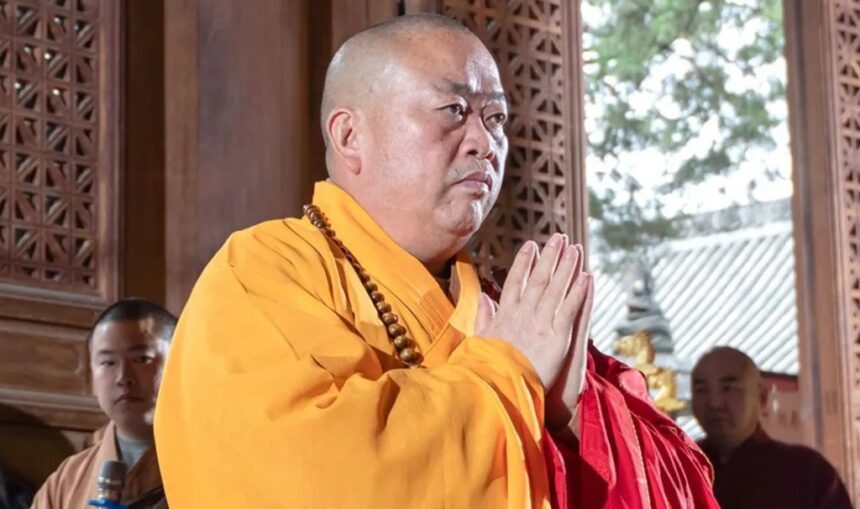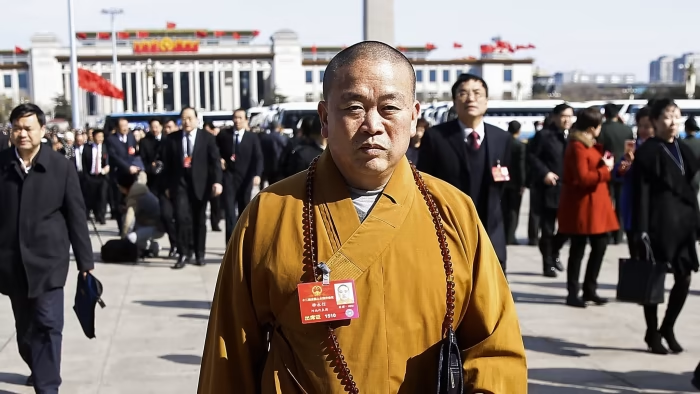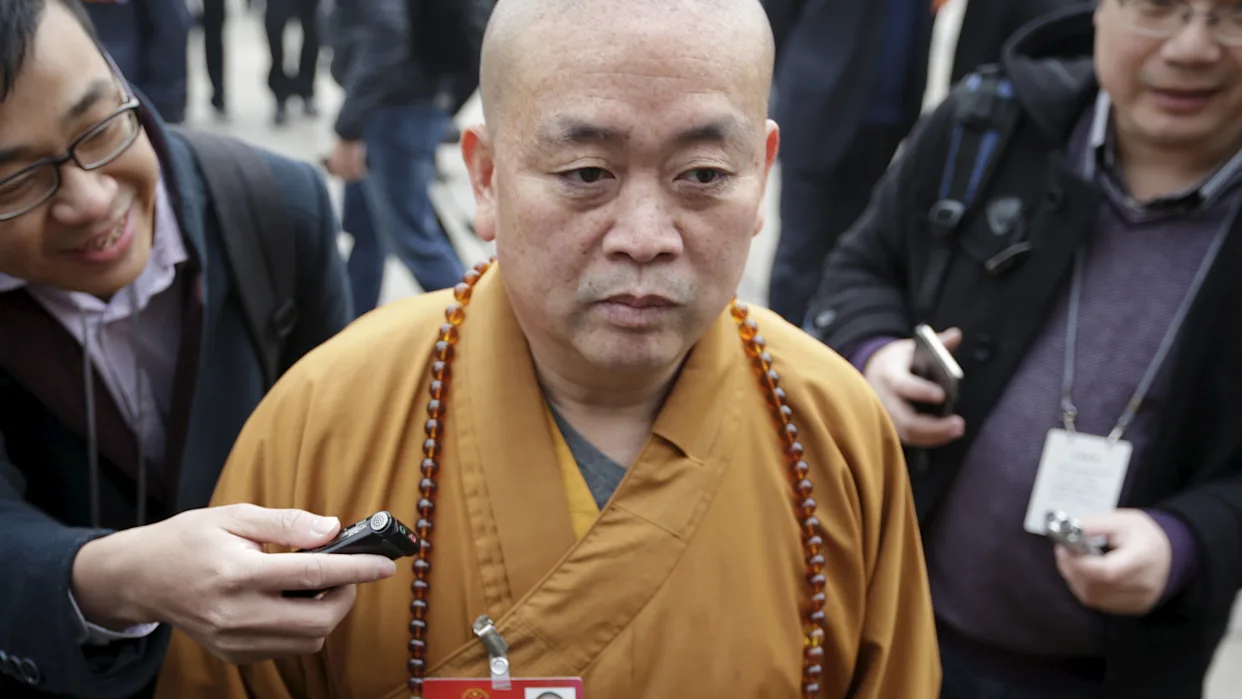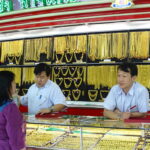HENAN, China– The Shaolin Temple stands as a 1,500-year-old icon of Zen Buddhism and the birthplace of kung fu, attracting visitors from around the world. Its location in the Songshan Mountains, a protected UNESCO World Heritage Site, has made it a top destination for martial arts fans and those seeking spiritual guidance.
Now, the temple faces intense public attention as its abbot, Shi Yongxin, often known as the “CEO Monk” for his strong business influence, finds himself under criminal investigation.
On 27 July 2025, the temple’s management confirmed that the 60-year-old Shi is accused of embezzlement, misuse of temple property, and breaking Buddhist rules, including alleged inappropriate relationships and fathering children out of wedlock.
The Buddhist Association of China responded by removing his ordination and calling his actions shameful, saying they have caused serious damage to the reputation of Chinese Buddhism.
Shi Yongxin’s Path to Power of the Shaolin Temple
Shi Yongxin, born Liu Yingcheng in Anhui Province in 1965, entered Shaolin Temple in 1981 as a teenager, training under Abbot Shi Xingzheng. After his mentor died in 1987, Shi quickly rose to head the temple’s management group.
By 1999, he became abbot, marking the start of a long and sometimes controversial leadership. With an MBA (a rare achievement for a Chinese monk), he led the temple’s expansion into global business projects in tourism, publishing, healthcare, and property, helping Shaolin register over 700 trademarks like “Shaolin Kung Fu” and opening martial arts schools in dozens of countries.
His focus on business won him the nickname “CEO Monk,” but also caused backlash among those who said it pulled Shaolin away from spiritual values. Using the Shaolin name in films, TV, games, and live worldwide projects brought claims that he was turning spiritual heritage into profit.
In 2006, Shi accepted a luxury car valued at about 1 million yuan from local officials as thanks for boosting tourism, causing a wave of criticism. He defended his choice, saying monks are citizens doing their bit for society and deserve to be rewarded.
Shi pushed ambitious projects, like the attempted $297 million Shaolin-themed complex in Australia, which included a temple, hotel, academy, and a golf course. Some felt such plans went too far, making the temple a commercial brand. Shi compared Shaolin’s global reach to Disney, saying that if China could host Disney parks, other countries could welcome a Shaolin centre too.
Shi’s leadership has sidestepped scandal before. In 2015, a former disciple using the name Shi Zhengyi accused him of financial and moral wrongdoing, including claims about mistresses and children.
The allegations, backed by documents, led to an official investigation. The temple called the claims false and prepared to sue for libel. By 2017, authorities found no proof of wrongdoing, so Shi kept his post and even became vice president of the Buddhist Association of China in 2020.
Renewed Allegations: Questions Over Shi’s Conduct
The recent accusations against Shi carry more weight than previous scandals and have resulted in a detailed investigation by different agencies. On 27 July 2025, the temple stated via WeChat that Shi stands accused of misusing temple funds, embezzling assets, and breaking his vows as a monk, including reports of affairs with several women and fathering an illegitimate child.
The Buddhist Association of China issued a sharp statement condemning Shi, revoked his ordination, and called his behaviour disgraceful.
This news caught the attention of millions, causing waves on the social platform Weibo, where users shared feelings of shock, doubt, and sometimes satisfaction at his apparent downfall. Some recalled his earlier scandals, pointing out that they now appear unresolved. Official agencies denied stories that Shi tried to escape abroad with his alleged mistresses and children, saying these claims were false.
Still, old and new allegations about lavish spending and sexual misconduct have hit public opinion hard. Others who worked at the temple, including previous monks and volunteers, have described a culture of high living, expensive cars, and poor handling of donations.
Dengfeng City’s Public Security Bureau, together with provincial officials, has launched a full audit of the temple’s finances covering the period from 2020 to 2025. This includes checking bank transactions, donation lists, and accounting documents.
Insiders claim several women, including ex-volunteers, have accused Shi of inappropriate behaviour, prompting wider debate about the balance between power, rules, and duty in religious life.
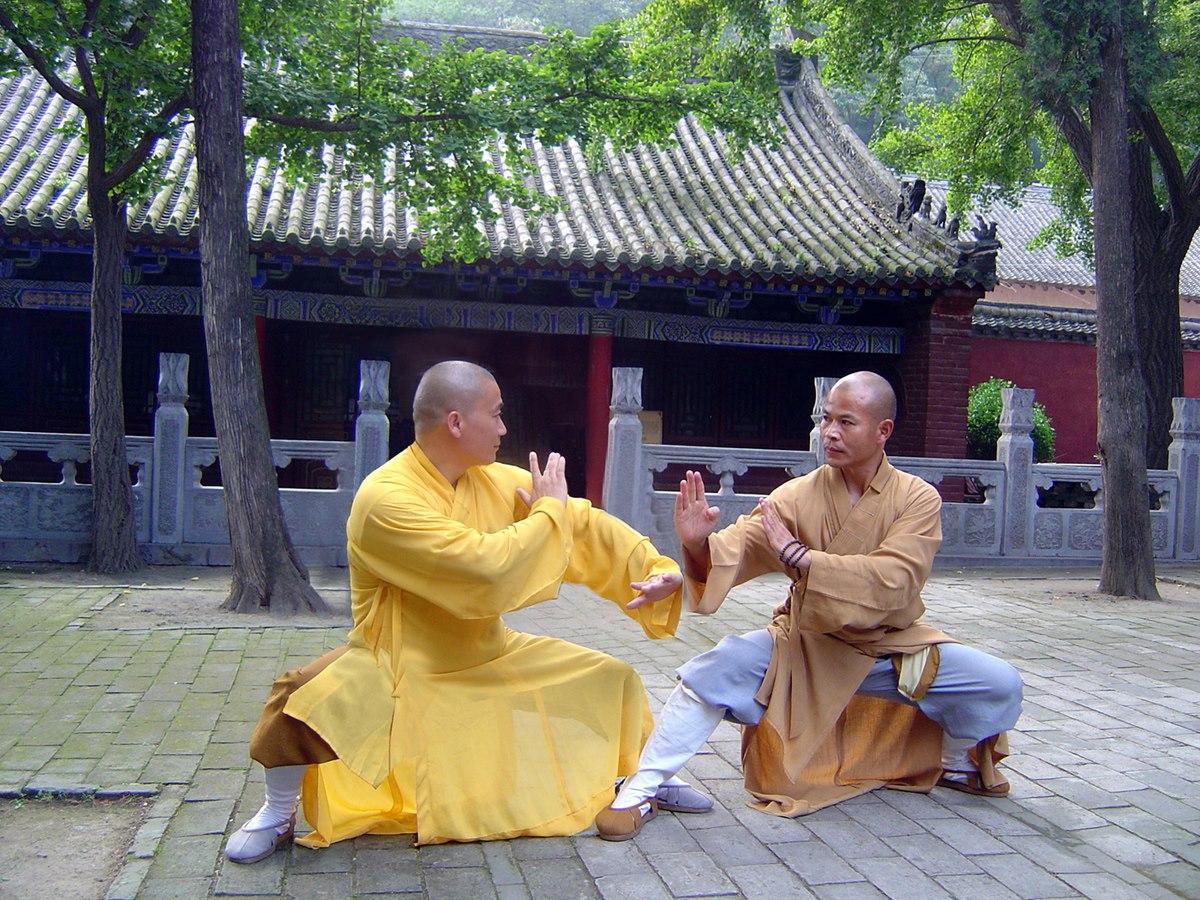
Shaolin Temple: Beyond Kung Fu and Meditation
Established in 495 AD, Shaolin Temple has kept its place as a leading site for Chan (Zen) Buddhism and the home of Shaolin Kung Fu. The blend of martial arts with spiritual practice made it a unique part of culture, inspiring everything from classic kung fu films and albums to famous video games.
Each year, millions visit, drawn not only by martial arts shows but also meditation retreats and the temple’s rich history.
During Shi’s leadership, the temple grew into a worldwide presence. New groups were set up, including the Shaolin Temple Martial Arts Team and the Shaolin Cultural Research Institute.
He encouraged “Shaolin studies” as an academic field. Business projects such as the Henan Shaolin Temple Industrial Development Company and Tiesong Technology, which secured land in Zhengzhou for a commercial building in 2022, boosted local business and tax income. Still, many argued these business moves have left spiritual traditions behind, turning the temple into a tourist attraction above all else.
Shi’s investigation has prompted a wider discussion across China about how to balance tradition with modern expectations and accountability in religious groups. Hu Xijin, ex-editor of the Global Times, commented that “no place is safe for corruption anymore”, calling this the most high-profile corruption case involving a Buddhist temple in years.
The Buddhist Association’s removal of Shi’s ordination suggests a tougher line on misconduct, in line with the government’s anti-corruption work under President Xi Jinping.
Reactions on social media are divided. Some praise Shi for making Shaolin known worldwide, while others see the latest events as a betrayal of core Buddhist values. Official statements from the temple have been brief, saying that updates will come as soon as the situation is clear.
Related Temple News:
Monks Behaving Badly, Creating a Crisis of Faith in Thailand




